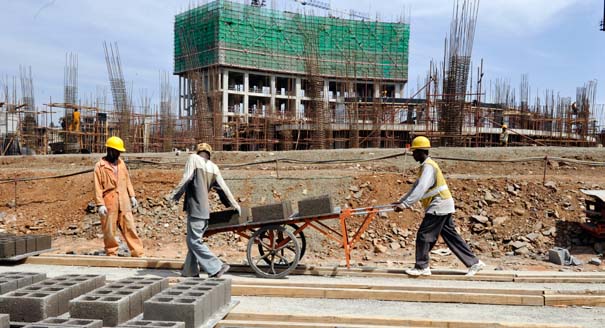After stagnating for much of the postcolonial period, economic growth in Africa has accelerated since the mid-1990s. Improved terms of trade, better macroeconomic and education policies, and greater demand for services helped Africa’s annual GDP growth rate more than double to 4.6 percent from 1999–2008 compared to the previous decade. Impressively, GDP in African economies accelerated more quickly than that of developing economies in other regions.
To continue this growth, Africa must overcome numerous challenges. Africa suffers from low investment and savings rates, a lagging demographic transition as the continent’s high fertility rate creates a bulge in the number of young people requiring education, low productivity, and a low level of exports—even as export prices have increased.
Still, Africa also has a number of long-term growth opportunities. By developing ties with emerging economies such as China and India, Africa will be able to export more goods abroad, particularly as income and wages in those countries grow. The emergence of a middle class in Africa will also create more demand.
To ensure Africa successfully moves up the development ladder, policy makers must improve the continent’s governance and business climate, allowing it to compete successfully with other poor but increasingly dynamic developing regions. Specific steps include:
- Improve the investment climate. Africa must take small steps—such as reducing the cost of registering and closing a business—and make fundamental reforms—such as strengthening the rule of law—to make the business environment more predictable. Improving trade logistics will also help Africa reap new opportunities as production processes become more globalized.
- Raise agricultural productivity. Few sectors offer greater room for improvement than agriculture, as Africa has the lowest cereal yield per hectare of any developing region. Africa should use genetically modified seeds, complementary fertilizers, and more efficient farming to boost crop yields.
- Invest in a skilled labor force. Policy makers must raise the quality of education—for example, through increasing enrollment in the sciences and improving skills such as numeracy and problem-solving—to close the widening innovation gap with other developing regions. Highly skilled workers make up the largest share of Africa’s emigrants. Adequate compensation, better job opportunities, a strong business climate, and easy access to information technology will help African economies retain skilled workers.
Africa’s continued—and accelerated—growth over the long term is by no means guaranteed. But if policy makers can build on their successes so far and tackle tougher second-generation reforms, they can help Africa become more competitive, improve productivity, and increase per-capita incomes well into the future.





